Media | Articles
4 Things Silently Killing Your Vintage Car
You click the ignition key one detent to the right. A quick twitch of the right foot to tickle the accelerator pump and set the choke. Another touch on the key and . . .
Nothing.
What should be a crescendo of eight trumpets playing the V-8 version of taps and stirring the car person’s soul awake is instead the painful silence punctuated by the soft click of the ignition cylinder returning to the off position. Wake up, it’s just a nightmare.
At least, for now it is. It could happen to you, though. Nature is a cruel mistress who is conspiring against us and our cars and doing so both vigorously and silently. Here are four main offenders to keep your eye on, since your ears aren’t going to help.
The Garage Fridge
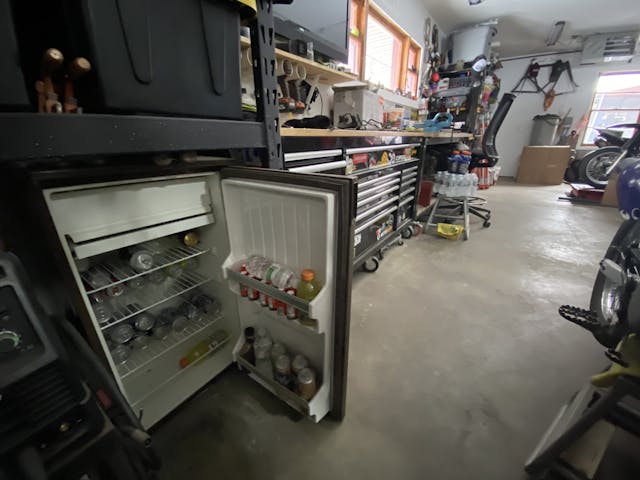
Current moving around inside an electric motor—like the compressor of a refrigerator—produces ozone, and that combined with sunlight can age tires and other rubber parts very rapidly. Replacing dry-rotted but otherwise fine parts gets expensive and annoying very quickly. If you are like me and aren’t ready to give up the fridge or freezer, focus on keeping sunlight away from your vintage ride.
Marketplace
Buy and sell classics with confidence
Corrosion

Deep inside your car, there is a war being waged between materials and nature. Hate to break it to you, but nature always wins. That means rust and other types of corrosion are leaching into the metals and connections that not only shape your car but also make it functional and easily serviceable. For every joke about “hearing a car rust” there are five cars that rusted away before the owner even noticed.
Being Parked

Sitting is the last thing cars were designed to do. All of the silent killers, and a few of the noisy ones, attack when the car is laying dormant. These things gain ground while the car is waiting, only for us to claw back some ground with our occasional drives. Oil coatings slip off and leave dry-start conditions inside an engine that could drive an owner to doing the extra work of priming an engine just to go driving. That’s only for those who are both aware and care enough to take that action. For many, ignorance is bliss when turning the ignition key and hearing the rumble through the exhaust pipes.
Friction

Fine, I’ll concede this one is not always silent, but with or without noise, excess friction is making your vintage car smaller with every drive. I’m not even talking about the intentional friction from brake or clutch lining, but instead about the metal-to-metal contact that was never designed to be that way. Grease and oil are subject to gravity just like us, so keeping oil and grease in the right spot is a never-ending task as they silently slide and ooze past seals and gaskets. One small drop on the garage floor might not seem like a big deal but over time can mean lots of very worn-out parts that seemingly happened out of nowhere.
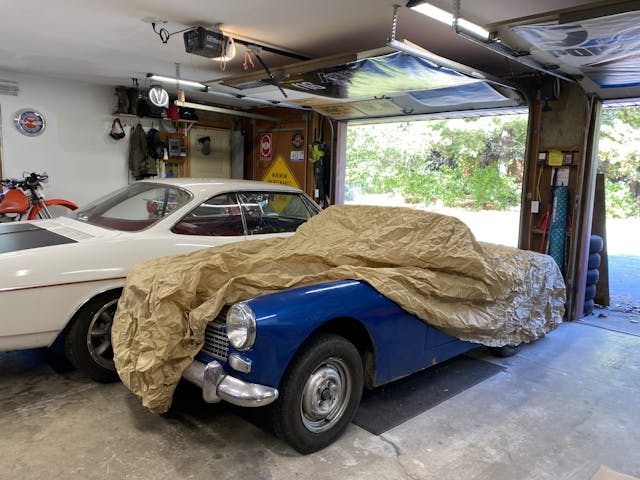


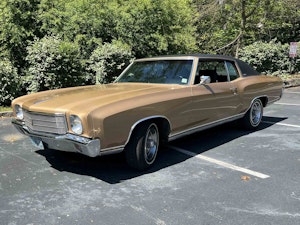


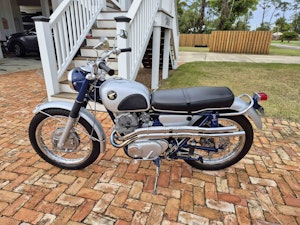
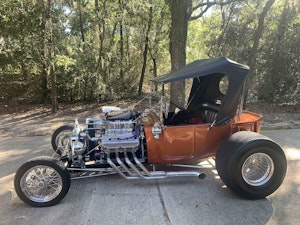

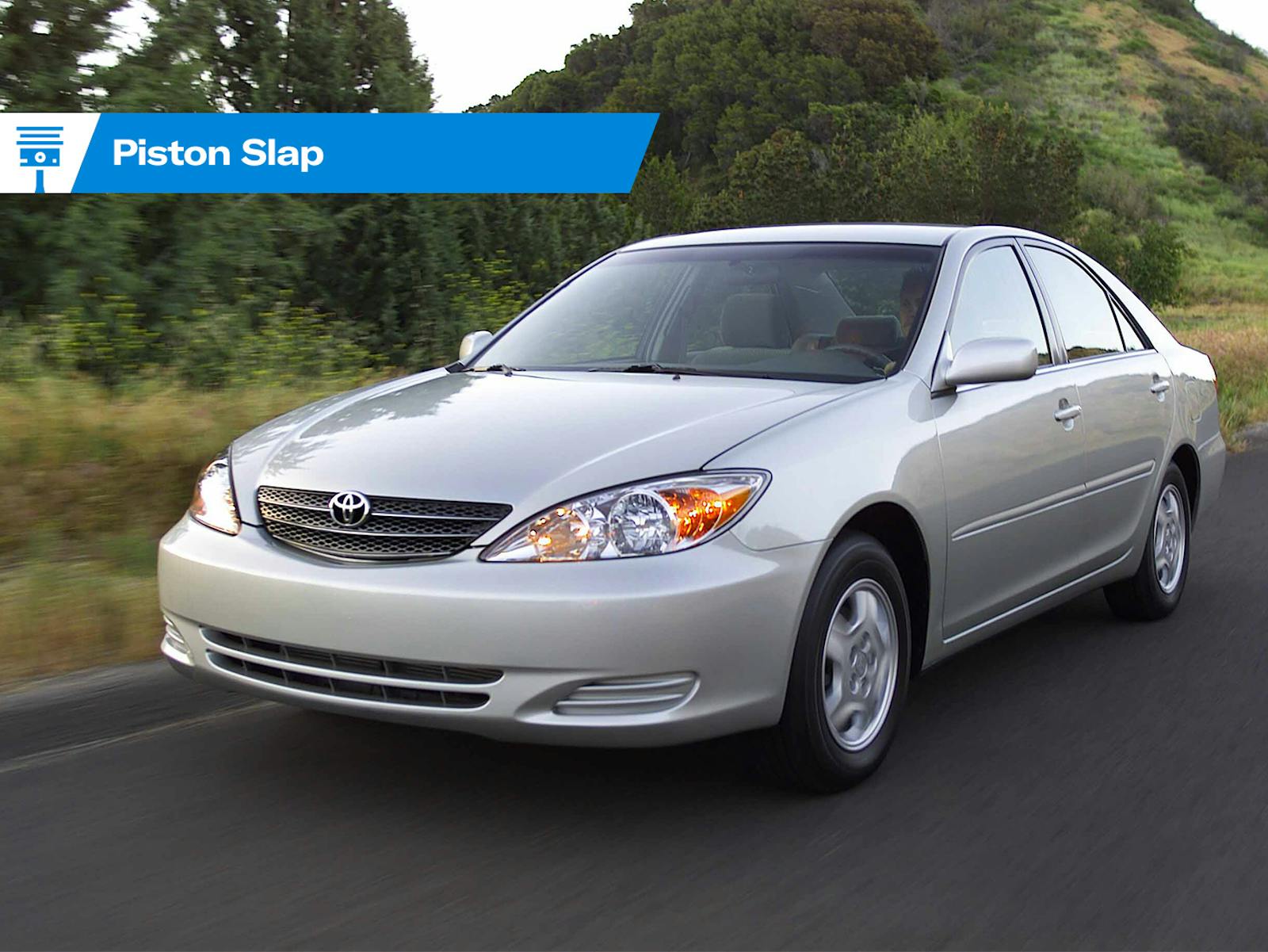





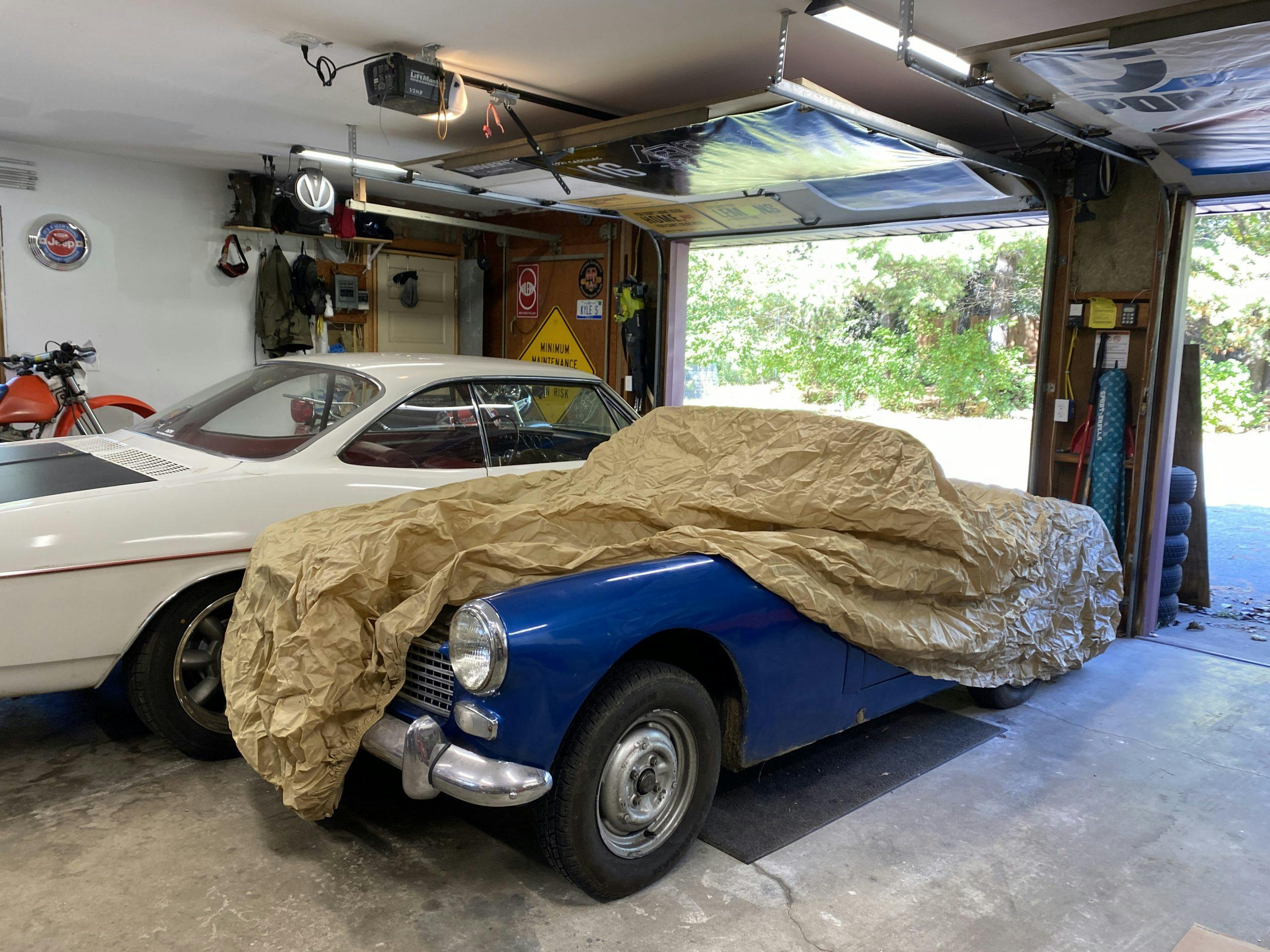
Regarding brake fluid being “designed” to absorb water, it is true that that glycol-based fluids absorb water; that is the reason why the fluid should be tested and changed out if found to have excess water content (something that nearly nobody does). DOT 5 brake fluid is silicone-based and does not absorb water. I have been using it in all my pre-ABS cars and motorcycles for decades with no issues. Wrong viscosity for ABS, unfortunately. Aircraft use a mineral oil called 5606 for brake fluid and have no water-absorption issues, so never needs to be changed out.
I’m in the “no car covers” camp, for indoor-stored cars. For my outdoor cars, yes absolutely. But only when the cars are very clean. I never put a car cover on a gritty car.
For my classics kept in my garages, I love being able to immediately see and enjoy the lines of the cars whenever I go out there. It’s satisfying on many levels. Even my wife prefers the cars being visible.
Makes it easier, also, to give a brief glimpse of your cool cars to a new neighbor or friend (when you store without covers) versus than having to go through the hassle of removing all covers.
With the covers on, all I can do is describe the cars, which may or may not be fully understandable to the listener: “Okay, that’s a Kirkham Cobra with a 427 side-oiler under the cover on the top rack, next to it is a Tungsten FGT, and back there is the ’69 triple-black Mark III with only 11,000 miles on it. Which is an interesting counterpart to the low mile all-black ’69 Grand Prix next to it.” Etc, etc.
Now try that when you have ten collectible cars. Your words won’t be even close to having the same effect as actually showing the cars.
As for a garage fridge, I tend to do better work, and can work longer, when there’s a nearby supply of cold beverages. Even if that’s just diet cola or iced tea. Now, for the guys lucky enough to have a restroom in their garage, even better. You can stay out there, working, for days!
Another item slowly killing our vintage cars is today’s gasoline. I’ve installed electric fuel pumps on a couple of my classics, so I can run the carb completely dry of fuel when shutting it off for a bit of a slumber. That definitely helps.
I have been doing refrigeration work for over 40 years and I can honestly tell you the fridge is NOT emitting ozone. The compressor and refrigerant circuit are a sealed assembly. If the refrigerant inside leaked out of the fridge it would not cool. So if any ozone is produced by the motor, as long as it is cooling, could never be present in the air. My 1963 Cadillac has been sitting next to my 73 year old fridge for years and it is holding up just fine.
Here in the NW – mold. If it’s parked outside with no cover.
get in and drive, I take out my street rod even on cold winter days as long as the roads aren’t salty, it’s the most fun when the temps are near zero, the Buick turbo V6 loves that artic air.
Consider a rust inhibiting oil spray offered by many body shops and independent retailers. Certainly holes drilled in panels to apply the spray makes many classic car owners cringe but its better than rusted out panels. At a minimum get the undercarriage sprayed.
I was hoping the article would mention my biggest fear: ,mice, squirrels, and other varmints can get into the bowels of your car and feast on the wiring upholstery and headliner or convertible top.
The words. Greed jealousy and gualt also apply. My beautiful 1959 red flat top caddy with all options was sabotaged grindings from a drum lathe entered the oil filler neck about a cup
Took the engine out completely
Now no more car shows or best of show or first place.
Somebody else needed them more than me
Not sure about this article being actually helpful. Car cover, yes. But starting a car while it is sitting seems to cause more problems than it solves with moisture accumulating unless it gets really hot. A relatively sealed engine sitting is not a problem. Maybe cover the air inlet. And gasoline! That is the worst offender, definitely need a gas storage product and fill it up with fresh gas before storing. Rodents! A major problem.
Fridges ? really, that’s a huge stretch, they are not a problem these days. But Cats will ruin a vehicle, they are destructive animals and don’t want them near my classic. They extend their claws when sliding off the edge of a vehicle leaving scratches and the oils from their paws are hard to clean off. Not to mention what they will do to a expensive car cover
One of the worse things is to park on dirt.
Asphalt or concrete are much better and allows for dissipation of moisture.
BTW a running refrigerator does not produce enough ozone to damage anything. They have sealed motors.
Ozone is produced from electrical discharge like a spark. This is why you may smell ozone near electric motors, electric generators. These devices and many others will produce low levels of ozone in the air through electrical discharge.
My car is 54 years old, a 1970 Beetle. I am 80 years old and between spring and fall the good old bug is my 2nd car. Not quite a daily driver, but pretty close. The car is nearly original, except the upholstery which I replaced years ago. My garage fridge is the one that moved from the kitchen 14 years ago and now looks like a split window VW van. I got quite creative with it and ozone or not, it stays! Rust is not an issue, there is hardly any on the car now and whatever develops in the years to come won’t be my worry anymore. The engine reliably leaks the odd drop of oil, I wouldn’t have it any other way. The battery goes down only when I go on a longer vacation. I don’t put it on the charger when we are not home for fear of a fire. But it always comes back to life until it doesn’t, then I get a new one. Now, to conclude, my vintage car is only a VW and not some super valuable rarity that I would loose sleep over. But driving it through the countryside is better for my spirit than any therapist. So, there! Have a great day everyone!
“Taps” is played at the end of the day. “Reveille” is played to rouse the troops.
I have a 1961 Mercedes 190SL. It has been covered for 15 years and. Hasn’t been run. It needs attention and a fair amount of body work due to its previous life in Ohio snow. I’m in Atlanta, Ga. Any recommendations of a great restoration shop?
Men tend to look after their vehicles, especially classics, in an overkill mode which is admirable. Why is it they tend to avoid doctors and medical advice until they can’t get out of bed one morning? Just saying …… I think I’m one of those dudes but getting much better at it in my advanced age lol
People (men or women) tend to take care of the things they care about. A person’s priorities are theirs alone, for better or worse.
the more I age the more “being in denial” seems like a good thing!